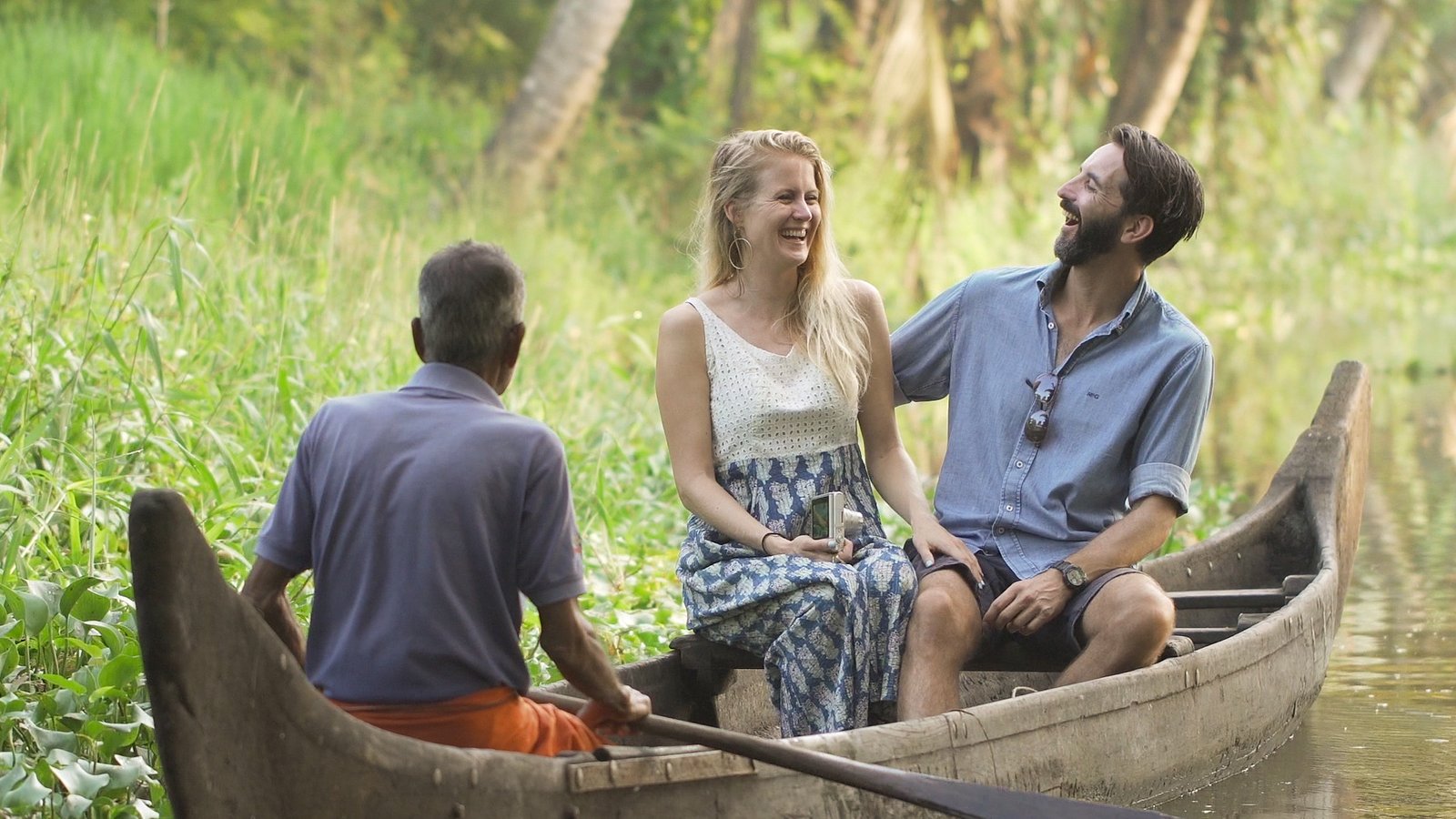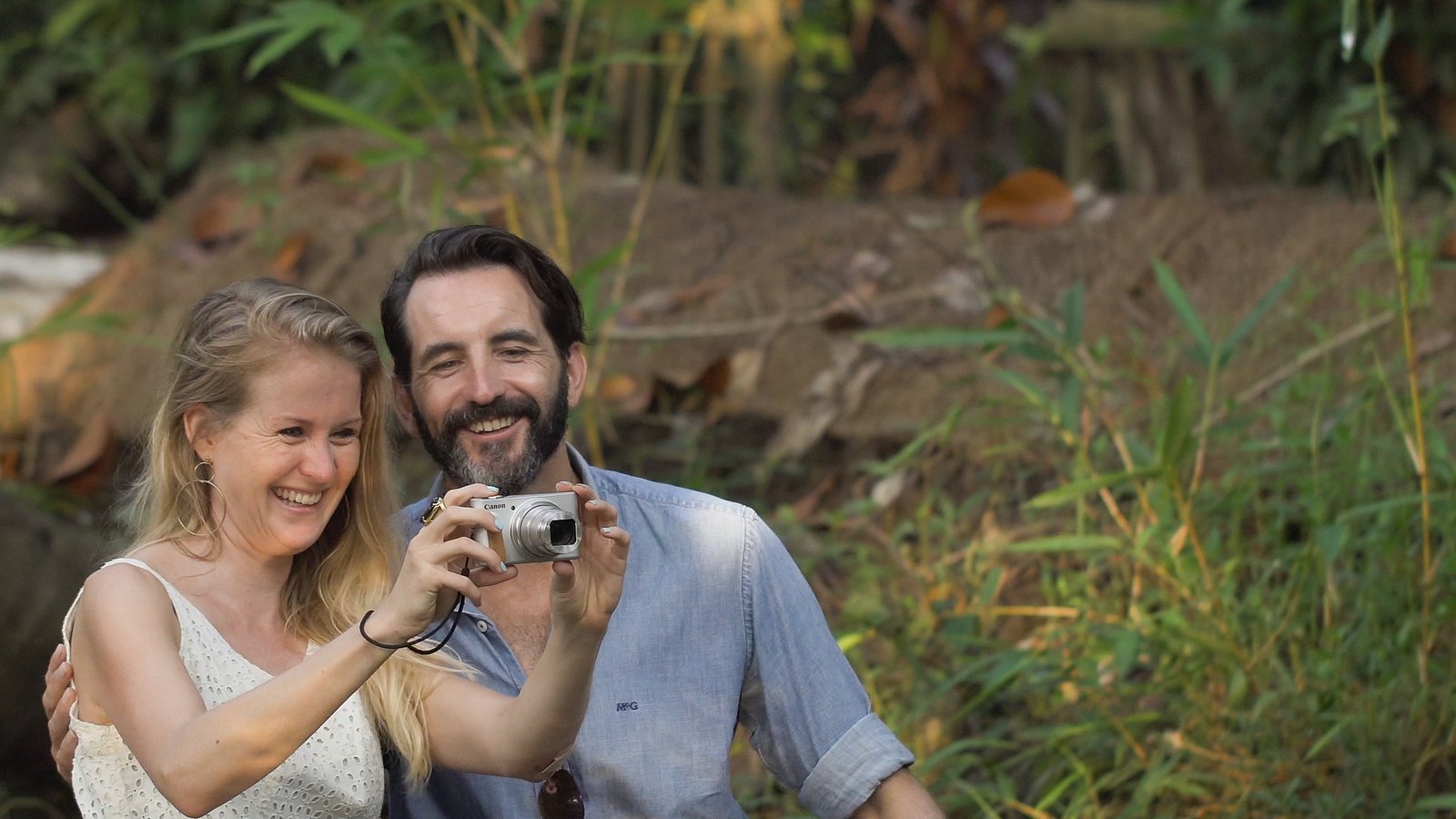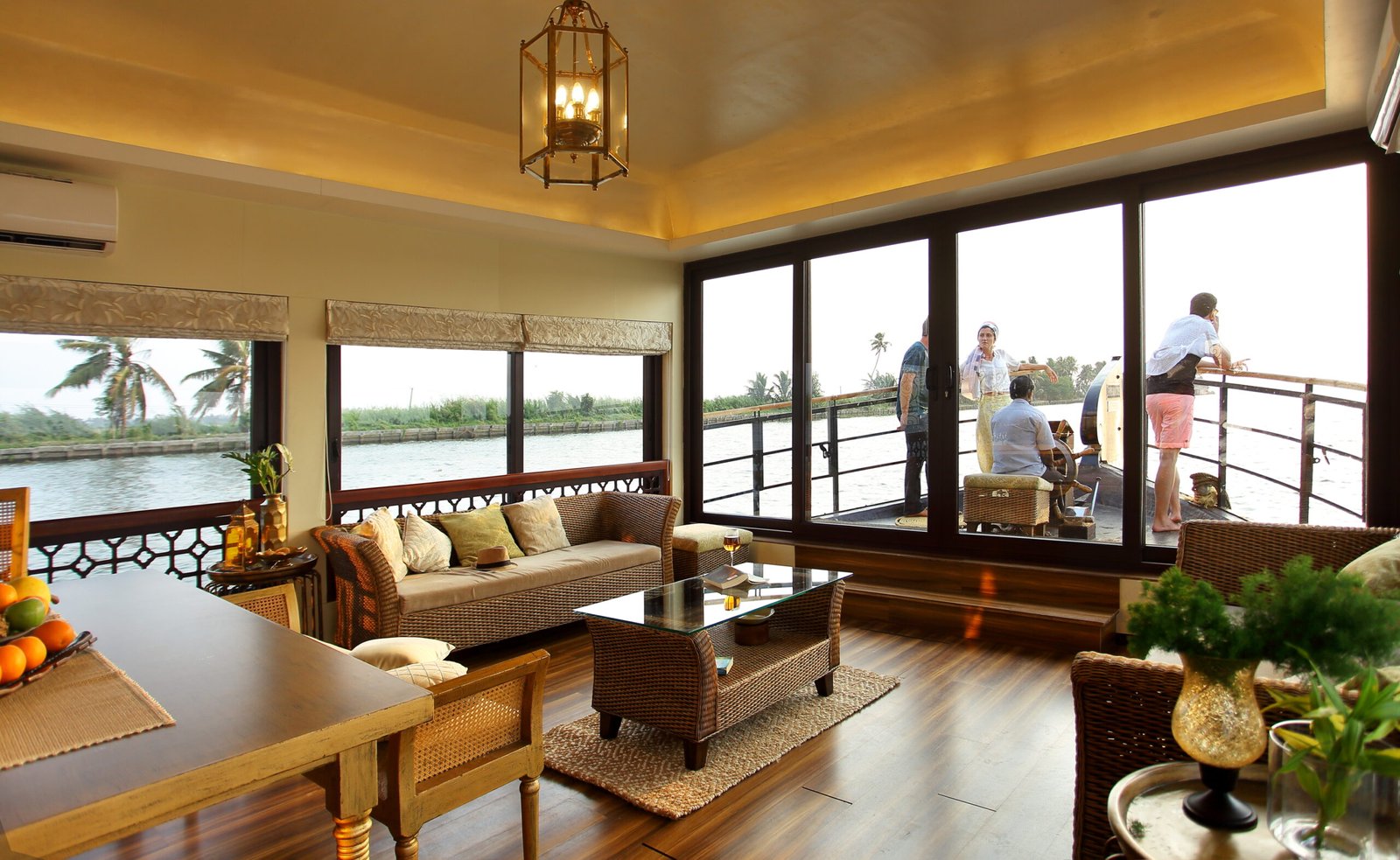Kerala’s backwaters are absolutely magical – there’s something about gliding through those emerald canals that makes you feel like you’ve stepped into another world. But here’s the thing: this paradise is fragile, and it needs our help to stay beautiful. The good news? Being a responsible traveler doesn’t mean sacrificing comfort or fun. It just means being a little more thoughtful about how we explore.
Why the Backwaters Need Our Care
Picture this: you’re floating past ancient coconut palms while kingfishers dart overhead and local fishermen cast their nets just like their grandfathers did. This isn’t just a pretty scene – it’s a living ecosystem where every piece matters. The mangroves filtering the water, the fish feeding the communities, the birds maintaining the natural balance – they all depend on keeping these waters clean.
The challenge is that what makes the backwaters so special also makes them vulnerable. More visitors means more boats, more waste, and more pressure on an environment that’s been relatively untouched for centuries.
Smart Waste Habits That Actually Work
Ditch the Plastic Bottle Habit Everyone says this, but seriously – bringing your own water bottle is probably the single best thing you can do. Most houseboats have filtered water now, and you’ll save money while keeping dozens of plastic bottles out of the water. Plus, there’s something satisfying about sipping from your own bottle while watching the sunrise over the canals.
Think Before You Pack Before leaving home, spend ten minutes removing unnecessary packaging from your toiletries and snacks. Those little plastic wrappers add up fast when you’re living on a boat for several days. Your future self will thank you when you’re not dealing with a pile of trash in your tiny cabin.
Create Your Own System Set up a simple sorting system using the bags you brought anyway. One for food scraps, one for recyclables, one for everything else. It takes zero extra space and makes disposal so much easier when you reach collection points.
The Golden Rule Nothing – and we mean nothing – goes overboard. Not apple cores, not cigarette butts, not tissues. Even things that seem harmless can throw off the ecosystem when hundreds of tourists do the same thing every day.
Products That Don’t Hurt What You Came to See
Gentle Soaps and Shampoos Those little travel bottles of biodegradable soap aren’t just for camping trips. They work perfectly well for regular bathing and won’t leave a chemical trail in the water. Many smell better than regular products anyway – lavender and tea tree scents somehow feel right in this natural setting.
Sun Protection That Actually Protects Look for sunscreens that say “reef safe” or “marine safe” on the label. They cost about the same as regular sunscreen but won’t contribute to water pollution. Your skin gets the same protection, and the fish stay happy.
Bug Spray That Doesn’t Bug Nature The backwaters can get buggy, especially around dawn and dusk when the wildlife is most active. Natural repellents work well here and won’t leave chemical residues in the water. Citronella-based products are surprisingly effective and smell way better than the hardcore stuff.
Wildlife Watching Without Disturbing
Keep Your Distance Those colorful birds perched on branches might look perfect for a close-up photo, but getting too near stresses them out. Bring binoculars or a camera with a good zoom instead. You’ll actually see more interesting behavior when animals aren’t worried about the big boat approaching.
Resist the Urge to Feed It’s tempting to share your snacks with the fish or birds, but feeding wildlife changes their natural behavior patterns. Plus, human food often isn’t good for them anyway. Watching them hunt and forage naturally is actually more fascinating than seeing them beg for handouts.
Embrace the Quiet The backwaters are naturally peaceful – that’s part of their charm. Loud conversations and music don’t just disturb wildlife; they also ruin the experience for other travelers seeking that serene atmosphere. Save the party playlist for later and let the sounds of nature be your soundtrack.
Making Every Drop Count
Quick and Efficient Fresh water is precious here, especially during dry seasons. Those 5-minute showers instead of 15-minute ones make a real difference when multiplied across all the tourists visiting. The good news is that shorter showers feel perfectly refreshing in the warm, humid climate.
The Towel Thing Unless you’ve been swimming in muddy water, your towel can probably last more than one day. This small change reduces the massive amount of water and chemicals needed for constant laundry washing.
Speak Up About Problems If you notice dripping faucets or running toilets, mention it to your host. They usually appreciate the heads-up since fixing small problems quickly saves a lot of water over time.
Supporting the People Who Live Here

Shop Where It Matters Those handwoven baskets and locally made spices aren’t just souvenirs – they’re someone’s livelihood. Buying from local vendors keeps tourism money in the community instead of flowing to distant corporations. Plus, you get authentic products with better stories.
Learn a Little Culture Spending a few minutes learning basic greetings in Malayalam or understanding local customs shows respect and often leads to warmer interactions. People love sharing their knowledge when they feel appreciated.
Choose Operators Who Care Some houseboat companies are genuinely committed to environmental protection, while others just talk about it. Look for operators who can explain their specific sustainability practices, not just mention “eco-friendly” in their marketing.
Energy Smart on the Water
Strategic Cooling Air conditioning can be a lifesaver in Kerala’s humidity, but using it wisely makes a big difference. Close all openings when it’s running, and try opening windows during cooler morning and evening hours. Many travelers find the natural breeze surprisingly comfortable once they adjust.
Unplug and Unwind Constantly charging devices drains more energy than necessary. Besides, part of the backwater experience is disconnecting from the digital world. Your phone battery will last longer, and you might discover you don’t miss the constant connectivity as much as expected.
Natural Light Works Great Traditional houseboats were designed to maximize natural light, and it creates a beautiful, soft atmosphere that electric bulbs can’t match. During the day, natural light is usually plenty for reading, eating, or just relaxing.
Thoughtful Photography

Drone Awareness If drones are allowed in your area, fly them considerately. Early morning flights are usually less disruptive to wildlife, and staying away from nesting areas protects vulnerable species. Always check local regulations first – some areas have restrictions for good reasons.
People Aren’t Props The fishermen, farmers, and families living along the backwaters aren’t tourist attractions. Always ask before taking photos of people, and respect their wishes if they prefer not to be photographed. Often, showing genuine interest in their work leads to much better interactions than just snapping pictures.
Planning for Less Impact
Pack With Purpose Bringing exactly what you need takes some planning but makes the whole trip more enjoyable. Less stuff means easier packing, lighter luggage, and less waste to deal with. Plus, you’ll have room for those local purchases you’ll definitely want to make.
Timing Matters Visiting during shoulder seasons often means fewer crowds, better prices, and less environmental pressure. The backwaters are beautiful year-round, and the slightly quieter periods often provide more authentic experiences with locals who have more time to chat.
Slow Down and Stay Longer Instead of rushing through multiple destinations, spending extra time in fewer places reduces transportation impacts and lets you really appreciate where you are. You’ll also discover things that quick visitors miss – like the best spots for sunset viewing or which vendors make the most amazing fish curry.
Going the Extra Mile
Balance Your Carbon If you’re flying in from far away, consider carbon offset programs. They’re not perfect, but they help fund environmental projects that balance some of your travel impact. Many are surprisingly affordable and fund reforestation or renewable energy projects.
Share What You See Taking photos of both beautiful scenes and environmental challenges can raise awareness among friends and family. Just share thoughtfully – focus on inspiring responsible travel rather than just showing off your vacation.
Get Involved Some conservation groups welcome tourist volunteers for beach cleanups or data collection. Even an hour or two of participation creates lasting positive impact and often provides interesting insights into local environmental efforts.
The Bigger Picture

Here’s what’s really cool about responsible travel: your individual choices inspire others. When boat operators see that tourists care about environmental practices, they invest more in sustainability. When other travelers notice someone being respectful, they often follow that example. It creates a positive cycle that makes everyone’s experience better.
The goal isn’t to stress about every single decision or turn your vacation into an environmental science project. It’s about making choices that feel natural and sustainable while still having an amazing time. Most responsible travel practices actually enhance the experience – you connect more with local culture, appreciate nature more deeply, and often save money in the process.
Making It Stick
Start with the changes that feel easiest and build from there. Maybe begin with bringing your own water bottle and choosing biodegradable soap. Once those become habits, add other practices naturally. Share your experiences with friends who travel – not in a preachy way, but by showing how much more enjoyable responsible travel can be.
The backwaters have been enchanting visitors for decades, and with thoughtful tourism, they can continue doing so for decades to come. Every mindful choice you make helps preserve this incredible place while supporting the communities who call it home.
When you’re floating through those peaceful canals, surrounded by unspoiled nature and warm local hospitality, you’ll know you’re part of keeping this paradise pristine. That’s a pretty great feeling to take home along with your photos and memories.
Experience Mindful Luxury with Spice Routes
For travellers seeking the perfect balance of comfort and environmental consciousness, Spice Routes Luxury Cruises offers an ideal solution. Established in 2008 as Alleppey’s pioneers in ultra-luxury houseboats, they’ve built their reputation on exclusive, sustainable tourism practices. Their fleet of air-conditioned houseboats (ranging from 1 to 5 bedrooms) ensures each booking gets private use of the entire vessel, maximizing comfort while minimizing environmental impact through efficient group accommodations. Located away from the crowded main waterways near Chennamkary village, Spice Routes demonstrates genuine environmental commitment through local sourcing – their chefs work directly with community fishermen and source vegetables from their own 7-acre heritage farm. The experience begins with check-in at a beautifully preserved 200-year-old heritage home, setting the tone for tourism that honors both luxury and local culture while protecting the delicate backwater ecosystem that makes Kerala’s waterways so extraordinary.

